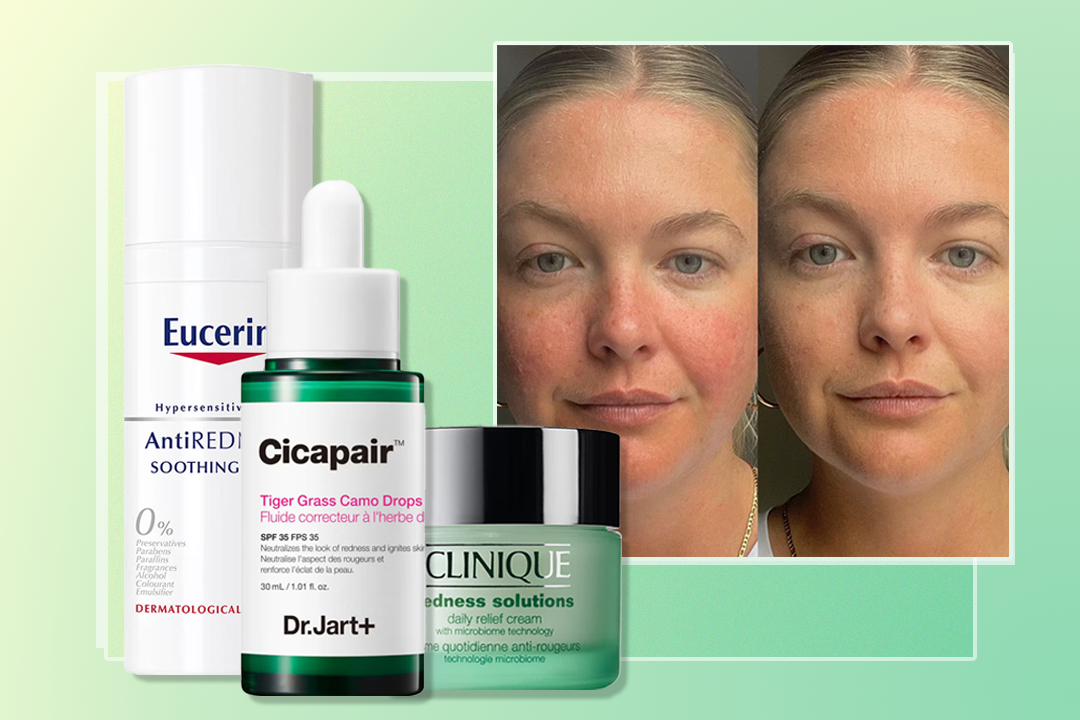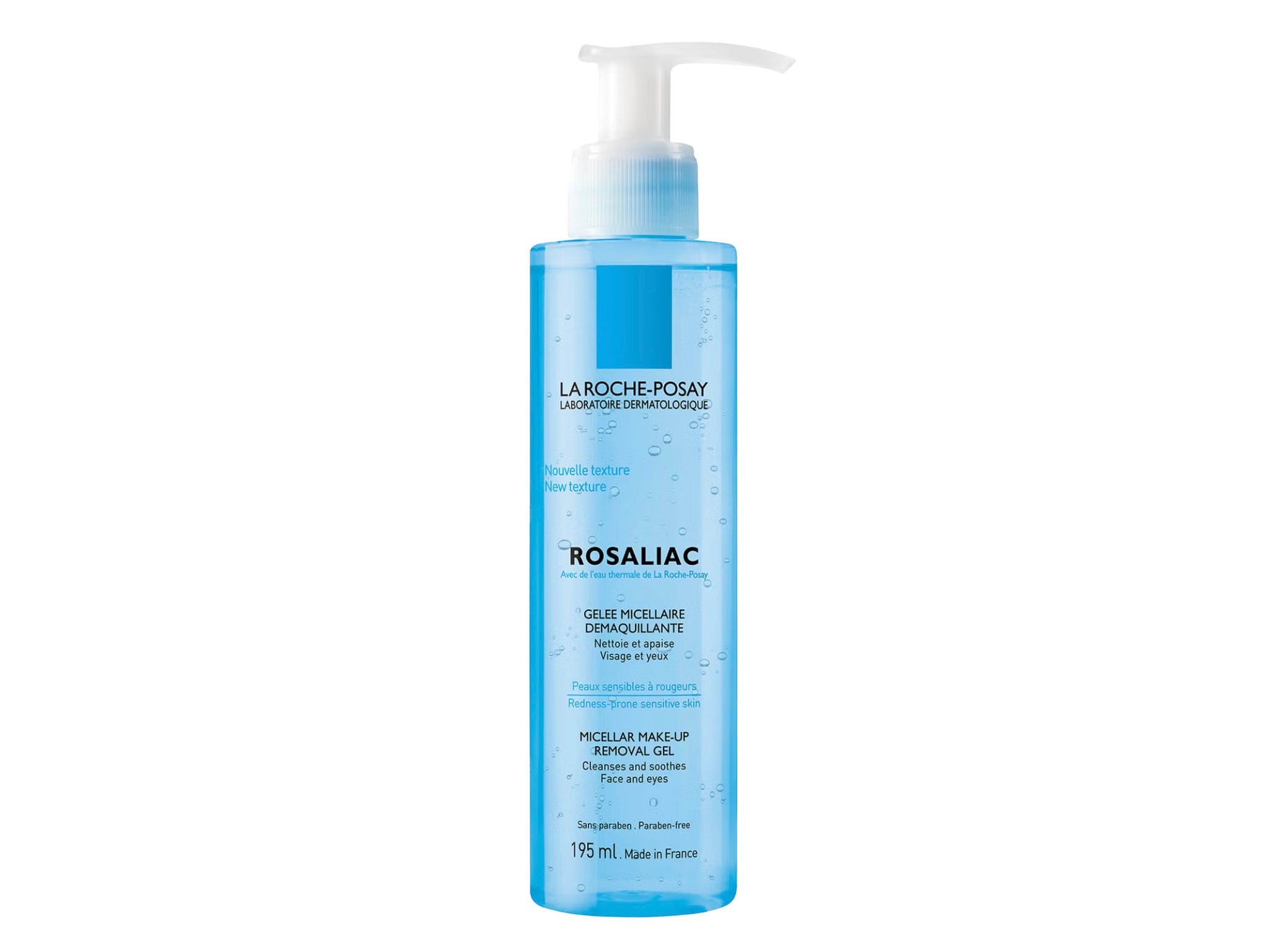The Independent's journalism is supported by our readers. When you purchase through links on our site, we may earn commission. Why trust us?
What is rosacea and how can you treat it?
If you’ve been struggling with the chronic skin condition, this expert-led guide is for you

Rosacea is persistent, long-term redness that appears on the skin and is very common. There are many ways to treat it, with plenty of products out there that can help soothe, calm and keep your skin happy. To make understanding the condition simple, we’ve consulted the help of Dr Ifeoma Ejikeme, an aesthetic doctor and founder of the Adonia Medical Clinic and Dr Sach Mohan, a cosmetic physician and founder of Revere Clinics.
Within our guide below, we’ve got all the answers to your burning questions about rosacea. From how to get the best from your skincare routine to the ingredients that can alleviate symptoms, we’ve left no stone uncovered.
Our shopping experts have also put a number of anti-redness products to the test, so we can share what actually works and is worth your money.
What is rosacea?
According to Dr Ejikeme, rosacea is a chronic skin condition that primarily affects the face, causing redness, flushing, visible blood vessels, and sometimes small, red, pus-filled bumps. “Rosacea can affect all varieties, but individuals with dry, sensitive skin might experience more noticeable dryness, flaking, and irritation associated with the condition,” she told IndyBest.
There’s not just one type of rosacea either, says Dr Ejikeme. “Erythematotelangiectatic rosacea is characterized by flushing and persistent redness, and may also include visible blood vessels,” she explains. “Papulopustular rosacea often resembles acne and involves red bumps and pus-filled lesions. Phymatous rosacea involves thickening of the skin and can lead to a bumpy texture, particularly around the nose (a condition known as rhinophyma), and ocular rosacea affects the eyes, and can cause red, irritated eyes and swollen eyelids.”
Rosacea appears most commonly among people with lighter skin, but those with darker skin tones are more likely to confuse the symptoms for something else, reveals Dr Mohan. “People with darker skin tones do develop rosacea, and the early signs can be missed, or mistaken for another condition,” he says. “If you have darker skin and rosacea, you may experience a warm feeling on your skin, dry, swollen patches of darker skin, brown discolouration and yellow-brown hard bumps.”
What causes rosacea?
The cause of rosacea is unknown, but Dr Mohan explains that identifying factors that trigger rosacea flare-ups is key to keeping the condition under control. Extreme temperatures, such as very hot or cold weather, hot showers, baths and saunas often exacerbate rosacea, along with overheating due to intense exercise, fragrance or alcohol in skincare products, stress and sun exposure.
“Try to manage stress by getting enough sleep, eat a healthy balanced diet, wear sunscreen daily with an SPF of at least 30 and try to avoid temperature extremes or protect against them,” he advises.
Within your beauty routine, Dr Ejikeme advises sticking to a gentle skincare routine with products that won’t further any irritation or inflammation. “Ingredients like niacinamide, azelaic acid, liquorice extract, and green tea extract can help reduce redness and inflammation without causing hyperpigmentation,” she says.
How can you treat rosacea?
The expert advice is to keep things simple. In your morning skincare regime, Dr Ejikeme recommends using a mild, non-foaming cleanser with lukewarm water and steer clear of irritants like alcohol or fragrances.

“Apply a moisturiser formulated for sensitive skin. Look for ingredients that calm the skin and strengthen the barrier, such as niacinamide, ceramides, and hyaluronic acid,” she shared, adding that “sunscreen is crucial for rosacea-prone skin. Choose a mineral-based sunscreen with titanium dioxide or zinc oxide, which is less likely to irritate sensitive skin. Aim for SPF30 or higher and apply it every day, even when it’s cloudy.”
If a doctor has prescribed topical treatments, such as azelaic acid, metronidazole or Ivermectin, Dr Ejikeme recommends applying them as part of your evening routine, after you’ve cleansed and moisturised.
What are the best products for rosacea?
In our guide to the best anti-redness products, our reviewer awarded the Ren evercalm redness relief serum (£28, Cultbeauty.co.uk) as their Best Buy, describing it as “a great long-term solution and quick fix to skin that’s suffered a reaction, taking away signs of sensitivity including tightness, burning and itching.”
They also highly rated the La Roche-Posay rosaliac micellar make up removal gel (£16.50, Lookfantastic.com) for its gentleness along with the Clinique redness solutions daily relief cream (£48, Sephora.co.uk) as a daily soothing moisturiser.
Voucher codes
For the latest offers on skincare, make-up and more, try the links below:
- Charlotte Tilbury discount codes
- Lookfantastic discount codes
- Asos discount codes
Keen to treat redness-prone skin? Take a look at our guide to the best anti-redness products for soothing, calming and colour-correcting skin
Bookmark popover
Removed from bookmarks